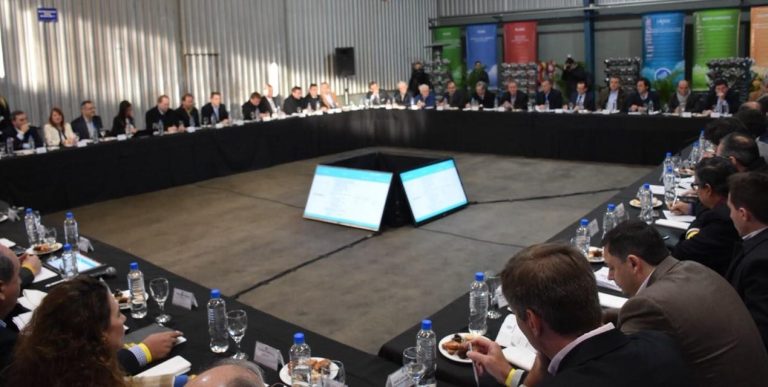A new wave of realignments is coursing through Latin America as voters, wearied by inflation, insecurity and uneven recoveries from the pandemic, punish incumbents and elevate outsiders. The result is less a tidy left-right swing than a broad repudiation of the status quo-one that is redrawing alliances, reordering policy priorities and testing the resilience of democratic institutions across the region.
From crime crackdowns to welfare overhauls, governments are recalibrating in response to public demands for order and opportunity, even as fiscal strains and social unrest constrain their room to maneuver. The shifts carry far-reaching implications: markets are reacting to abrupt policy turns, migration pressures are reshaping regional diplomacy, and debates over energy, climate and China’s influence are intensifying. As new leaders promise fast fixes to long-standing problems, Latin America’s political map is being redrawn in real time-raising fresh questions about governance, growth and the durability of change.
Table of Contents
- Electoral Pendulum Swings Toward Pragmatists As Mexico Brazil And Argentina Rebuild Big Tent Coalitions
- Crime Inflation And Evangelical Mobilization Redefine Voter Priorities With Border Regions And Port Cities As Decisive Battlegrounds
- Prioritize Independent Courts Targeted Cash Transfers Evidence Based Policing And Cross Border Energy Links To Stabilize Governance And Growth
- In Retrospect
Electoral Pendulum Swings Toward Pragmatists As Mexico Brazil And Argentina Rebuild Big Tent Coalitions
Across Mexico, Brazil, and Argentina, parties are recalibrating toward dealmaking as broad, cross-party bargains replace maximalist agendas-an approach aimed at securing governability, calming markets, and advancing piecemeal reforms that can survive polarized legislatures and restless electorates.
- Mexico: Claudia Sheinbaum’s incoming administration signals continuity and dialogue by keeping the finance chief and courting business, while Morena’s alliance works with minor parties and regional power brokers to move priority items-security coordination, energy policy clarity, and nearshoring infrastructure-through a fragmented Congress.
- Brazil: President Lula consolidates a centrist congressional base via the centrão, exchanging committee influence and budget amendments to pass tax modernization and microreforms, pairing social commitments with a pragmatic fiscal stance to sustain legislative throughput into the next electoral cycle.
- Argentina: Governing without a majority, Javier Milei has shifted to transactional negotiations with opposition blocs and provincial governors, trimming his reform package to secure the Ley Bases and prioritizing deregulation steps that can advance under shared ownership while broader restructuring remains contested.
Crime Inflation And Evangelical Mobilization Redefine Voter Priorities With Border Regions And Port Cities As Decisive Battlegrounds
Rising violence, stubborn inflation, and an energized evangelical base are reordering campaign messages around security, purchasing power, and moral governance, shifting the electoral map toward strategic frontiers where commerce and migration collide; parties recalibrate pledges on policing, tariffs, and social policy as pulpits, radio ministries, and WhatsApp chains double as turnout engines across key transit nodes. Key flashpoints:
• Northern Mexico and the Northern Triangle: maquila slowdowns and extortion at checkpoints propel support for customs crackdowns, cross-border task forces, and fuel-price relief.
• Guayaquil, Santos, Callao: container theft and drug interdiction debates center on port concessions, scanner technology, and anti-corruption audits that can swing coastal metros.
• Rosario and Manaus: river corridors where soy, timber, and contraband intersect align agribusiness with hardline security platforms and subsidized freight policies.
• Caribbean free zones: inflation-hit traders favor dollarization talk, VAT holidays, and cash transfers amplified by mega-church networks.
Internal polling shows swing voters privileging control of ports and crossings over legacy ideologies, rewarding coalitions that pair immediate crime suppression with price stabilization, logistics reform, and faith-led social services.
Prioritize Independent Courts Targeted Cash Transfers Evidence Based Policing And Cross Border Energy Links To Stabilize Governance And Growth
Amid a churn of electoral outcomes from the Andes to the Southern Cone, governments and opposition blocs are coalescing around a pragmatic toolkit that treats institutions and infrastructure as macro stabilizers-fortifying the rule of law, cushioning households with precision social policy, recalibrating security with measurable tactics, and wiring grids across borders to dampen price shocks-moves that analysts say could compress risk premiums, unlock investment, and rebuild public trust after a decade of volatility.
- Independent courts: merit-based appointments, tenure protections, random case assignment, and open-justice e-filing to curb forum shopping and clear backlogs.
- Targeted cash transfers: unified social registries, mobile disbursements, and inflation-indexed benefits that shield the near-poor while preserving fiscal anchors.
- Evidence-based policing: hot-spot deployment, problem-oriented operations, body cameras, and prosecutor dashboards to raise clearance rates and deter repeat violence.
- Cross-border energy links: expanded interconnectors and harmonized market rules to arbitrage hydrology and gas cycles, stabilize grids, and accelerate renewables integration.
In Retrospect
As power changes hands and alliances realign, the through line across Latin America is less an ideological wave than an electorate demanding results on crime, costs, and credibility. Volatile coalitions and narrow mandates leave little margin for error, while courts, congresses, and streets continue to test how far new leaders can stretch their agendas.
The next phase will hinge on execution: whether governments can stabilize prices, revive investment, and curb violence without eroding checks and balances. External pressures-from slower global growth to the energy transition and great‑power competition-will shape those choices as much as domestic politics.
For now, the region’s direction remains unsettled. What endures is the urgency: voters are rewarding performance over pedigree, and the durability of this reshaped landscape will be measured not at rallies, but in budgets, benchmarks, and everyday security.


